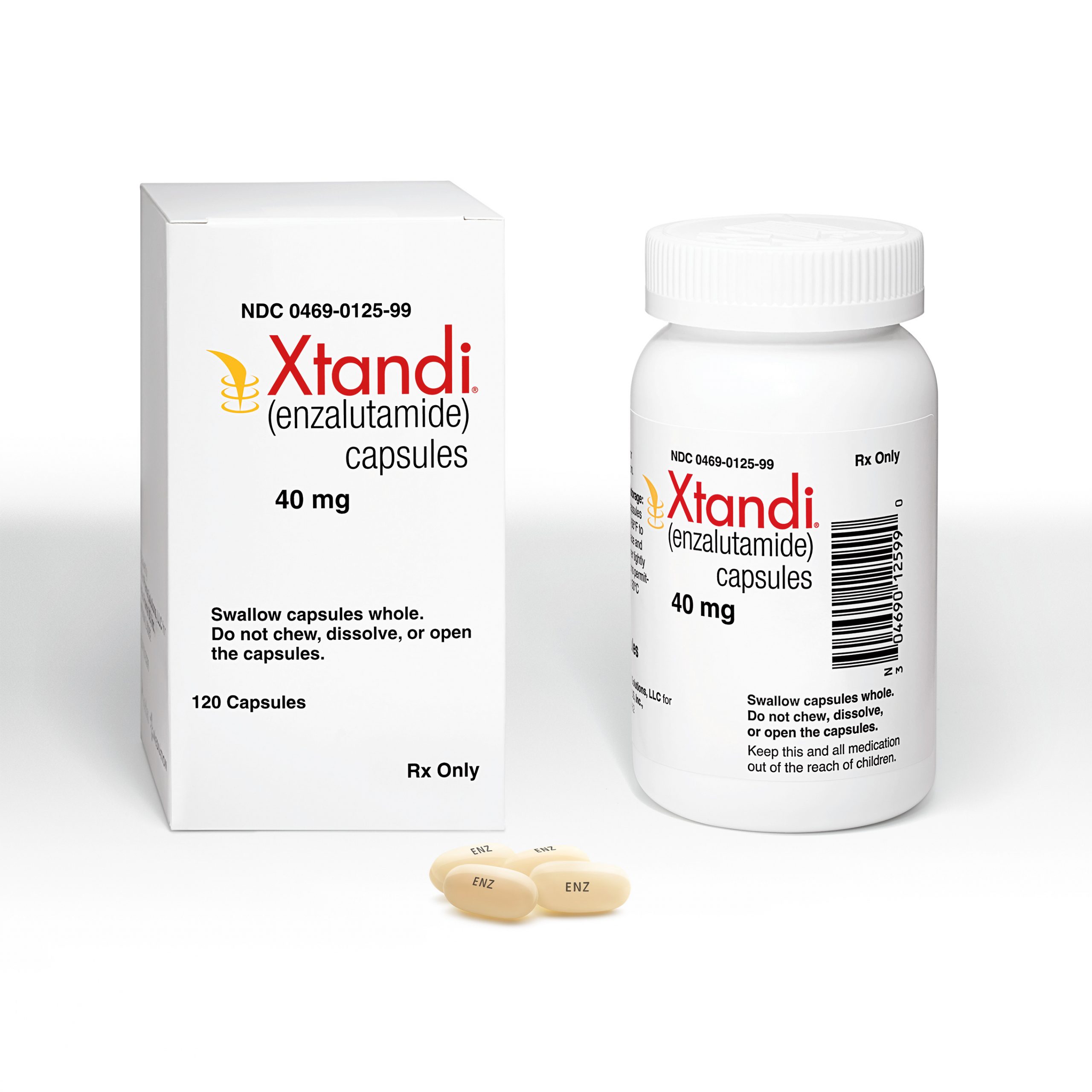Trial could unlock new prostate cancer sales for Pfizer/Astellas’ Xtandi

Pfizer and Astellas’ Xtandi has shown it is effective in men with prostate cancer that has spread but has not yet become hormone resistant, stepping up pressure on rival therapy Zytiga from Johnson & Johnson.
The results of the ARCHES trial show that giving androgen receptor antagonist Xtandi (enzalutamide) on top of androgen deprivation therapy (ADT) met the main objective of the study by significantly reducing the risk of radiographic progression or death in men with metastatic, hormone-sensitive prostate cancer (mHSPC). The results were presented at the recent ASCO Genitourinary (GU) symposium.
The new data is something of a catch-up for Xtandi in this indication, as Zytiga (abiraterone) has already shown its worth in this patient group in the STAMPEDE and LATITUDE trials, and on the strength of the to-line data suggest that Pfizer and Astellas’ drug is an effective alternative. The two companies say they plan to submit the data to regulators in the coming months.
Xtandi is currently approved in the US and Japan for the treatment of castration-resistant prostate cancer (CRPC) and in the EU for the treatment of metastatic and high-risk non-metastatic CRPC, but the new indication could add another 38,000 potential patients each year to the drug’s target population, according to Pfizer.
In ARCHES, Xtandi plus ADT reduced radiographic progression or death by 61% compared to ADT plus placebo, and the combination arm also outperformed the control group when it came to radiographic progression-free survival (rPFS).
The median rPFS hadn’t been reached in the Xtandi group by the data cut-off period, but came in at 19.4 months for the ADT plus placebo group, and there were also benefits for the add-on therapy in disease volume, the pattern of cancer spread and the need for subsequent chemotherapy. The overall survival data from the study aren’t mature yet.
Xtandi and Zytiga have been going toe-to-toe in the prostate cancer market for several years, and are dominating the androgen receptor antagonist market. Pfizer says it brought in nearly $1 billion last year from its own sales in the US and royalty income on ex-US sales booked by Astellas.
Zytiga meanwhile has been one of J&J’s top-selling drugs for some time, bringing in $3.5 billion last year, but is facing the threat of generic competition in the US after the US Patent & Trademark Office overthrew a key patent in January that was protecting it from generic competition until 2027.
Pfizer maintains that generic Zytiga won’t have a big impact on Xtandi, because the indications for the two drugs have some differences, while it says Xtandi has a better dosing regimen because it doesn’t need to be co-administered with prednisone, which is given twice-daily.
ARCHES isn’t the only new trial that Pfizer and Astellas think will help drive growth. Last year’s approval in non-metastatic CRPC, based on the PROSPER data, which Pfizer says is keeping the brand ahead of other rivals including Erleada (apalutamide), J&J’s follow-up to Zytiga which made its debut in the US last year and has just been cleared in the EU.
It’s also working on the EMBARK trial in non-metastatic hormone-sensitive patients, which could see another 30,000 eligible patients to the pot.
Xtandi and Zytiga are both facing looming competition from Bayer and Orion’s darolutamide, which also had encouraging new data reported at ASCO GU last week and is being pitched as having a potential safety advantage over the two established drugs.












